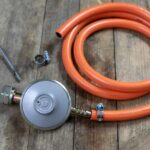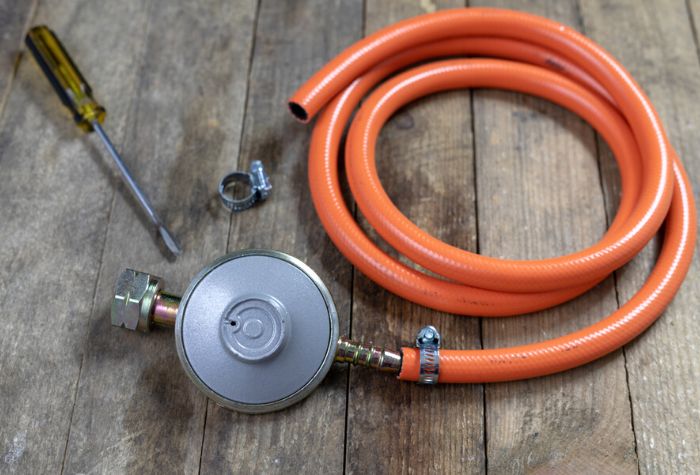What is a BTU? How important are they for propane gas grills and how many do you need? Find out everything you need to know with our BTU guide.
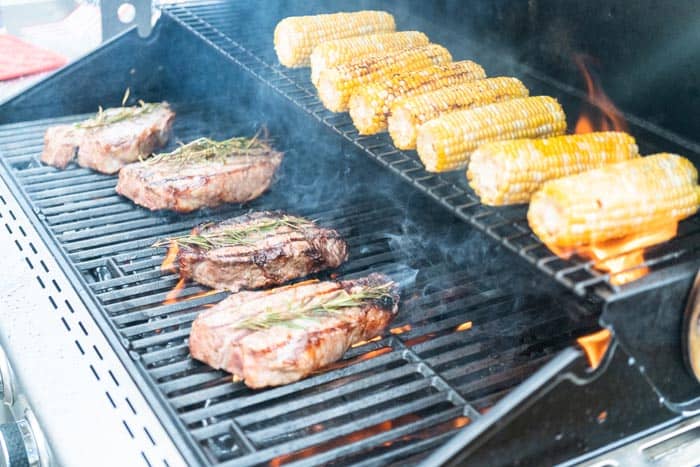
One of the most common questions we’re asked is “How many BTUs do I need for my gas grill?”. It’s a fair question. You want to ensure that you are getting as much bang for your buck as possible when buying your propane cooker. More often than not, BTU is the first term that pops up.
There is a lot of misinformation and misunderstanding around the unit of measurement, so this guide is here to help you cut through the noise. Find out what they are, why they’re important, and what number to aim for when buying your next propane gas grill.
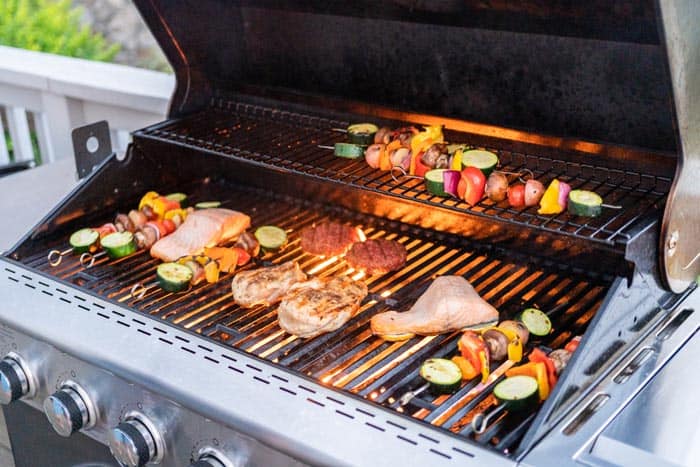
What are BTUs?
BTU is short for British Thermal Units and is a measure used to express units of heat. It’s the measure used for determining how much energy is needed to increase the temperature of one pound of water by one degree Fahrenheit. It’s a metric used in not just propane grilling, but also for heating appliances, like air conditioning.
BTUs are important in propane grilling because it indicates the amount of fuel used per hour. A grill with a high BTU rating will require more fuel than a grill with a low rating.
Misconceptions with BTU power
In a lot of cases, there are several misconceptions when it comes to BTUs. That is because it is a term that is often mentioned concerning propane grills. One of the more common misconceptions is that the higher the BTUs, the higher the heat output. This is not true. The BTU rating can easily be deceptive. They usually reflect the heat that is produced per hour for the main and primary burners.
The BTU of the side burners may differ from the BTUs of the main burners. As such, it is essential to know both. The cooking space’s size contributes significantly to the total heat output and not necessarily the BTUs alone. If you do not know the grill’s total cooking area, it becomes almost futile to know the BTUs. As such, check on the BTUs per area. This is how you can get a better picture of how hot or not the grill is.
Also, higher BTUs are often associated with cooking better. On the contrary, you want to check how well the grill disperses heat and how evenly it cooks. These are vital features. It is better to avoid higher BTUs. In many cases, this is usually a manufacturer’s ploy to get you to overlook poor workmanship.
Watch out for BTUs that are either extremely low or high. If they are too low, there is a possibility that it means that the grill takes long to heat up after opening up the grill or that it takes long to preheat.
You will see a lot of grill manufacturers boast about their BTUs, but BTU ratings are not the final word on heat generation.
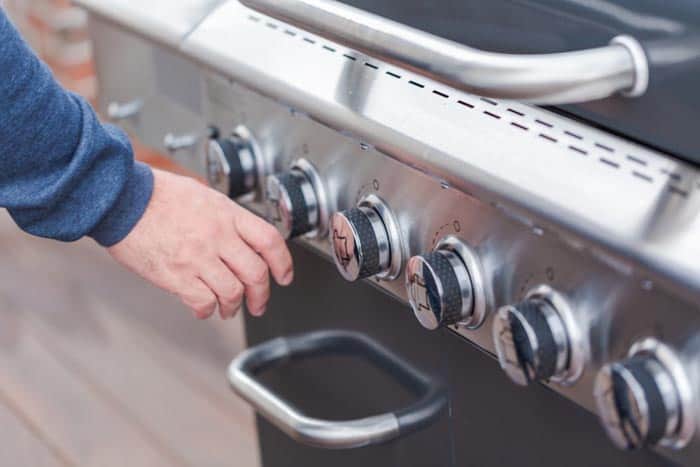
BTU ratings come from a calculation derived from gas pressure, gas valve size, and the type of gas used. This means that BTU actually indicates more fuel used and not higher heat.
For example, a large grill will require more fuel because it needs to cover a large cooking area. A smaller grill could use less fuel to achieve the same heat, and therefore have a lower BTU rating.
Heat flux
In reality, the heat output of a grill is calculated by something called ‘heat flux’. In simple terms, this is the BTU per square inch of cooking area across your grill’s grates.
To calculate your grill’s heat flux, divide its total BTU rating by its main cooking area in square inches. Don’t include its warming racks or side burner. For example, if your 4-burner grill has 48,000 BTUs and a 500-square-inch cooking area, this will yield a heat flux number of 96.
On the other hand, a 6-burner grill with 72,000 BTUs and a 900-square-inch primary grill area will have a heat flux of 80. This shows how the higher BTU metric is having to provide more energy to compensate for its large grilling area and, in reality, is providing less heat overall.
A good target heat flux number is 85, but it is not a perfect number. Other factors like construction, heat retention, and burner placement can all affect a grill’s bottom line power.
What is a good BTU for gas grills?
There isn’t a particular BTU value that is uniform for every grill. Instead, it is dependent on different factors such as the cooking area. However, even though there isn’t one digit, you can work around a ballpark figure. To work out the BTU, you can divide the primary burner’s BTU by the square inches.
This is because BTUs will give you an idea of how much fuel a grill will burn in an hour. The bigger the cooking is, the more gas is burned out during cooking. Heat flux is the amount of heat per square inch, and this is what you need to be looking out for to know the efficiency and power of your grill.
In most cases, the heat flux unit is around 85. However, it can also vary between 75 and 100 per square inch. This will work with a convective grill, but you will need to go for between 50 and 80 BTUs for infrared grills.
How you use your grill will determine the BTUs that you will need. For regular home use, you can get a grill that has about 80 to 100 BTUs. This will be enough for a family-sized grill. A four-burner grill, to feed more people, can have a BTU of 96. This could be for commercial purposes or large family gatherings with about four burners.
A portable grill with one burner could have a total of 12 000BTUs, and this is about the same for most tabletop and small grills.
How do I get more heat out of my gas grill?
BTUs is more about the amount of heat you use per hour for your grill size. The higher the number, the more your pocket cries out. So it would be prudent to look for ways to minimize the amount of heat that is used. There are a couple of things that you can do to make your grill hotter and get the most out of your grill.
Insulate the grill. You can build bricks around the grill piping. The bricks will then conduct from the gas and, in turn, increase the heat output for the whole cooking process.
Keep your grill clean. This is not just for hygiene purposes. When your grill is dirty, it impedes the gas heat. Keep your grill clean, and the heat has free access to the cooking surface.
You can also use tin foil to wrap your food in and heat things. The foil will speed up the cooking process, hence allowing you to use less heat.
One of the key things is making sure that your grill has features and materials that will support minimal energy usage.
FAQ
Got any burning questions about British Thermal Units for your outdoor propane grill? Our answers to frequently asked questions are here to help.
